PARIS — French President Emmanuel Macron announced Thursday that France will recognize Palestine as a state, in a bold diplomatic move amid snowballing global anger over people starving in Gaza. Israel denounced the decision.
#Macron said in a post on X that he will formalize the decision at the United Nations General Assembly in September. “The urgent thing today is that the war in Gaza stops and the civilian population is saved,” he wrote.
The mostly symbolic move puts added diplomatic pressure on Israel as the war and humanitarian crisis in the Gaza Strip rage. France is now the biggest Western power to recognize Palestine, and the move could pave the way for other countries to do the same. More than 140 countries recognize a Palestinian state, including more than a dozen in Europe.
The Palestinians seek an independent state in the occupied West Bank, annexed east Jerusalem and Gaza, territories Israel occupied in the 1967 Mideast war. Israel’s government and most of its political class have long been opposed to Palestinian statehood and now say that it would reward militants after Hamas’ Oct. 7, 2023, attack.
“We strongly condemn President Macron’s decision,” Israeli Prime Minister Benjamin Netanyahu said in a statement. “Such a move rewards terror and risks creating another Iranian proxy, just as Gaza became. A Palestinian state in these conditions would be a launch pad to annihilate Israel — not to live in peace beside it."
The Palestinian Authority welcomed it. A letter announcing the move was presented Thursday to Palestinian President Mahmoud Abbas in Jerusalem.
View 232 times
U.S. cuts short #Gaza ceasefire talks and accuses Hamas of lacking ‘good faith.
“While the mediators have made a great effort, Hamas does not appear to be co-ordinated or acting in good faith,” Witkoff said in a statement. “We will now consider alternative options to bring the hostages home and try to create a more stable environment for the people of Gaza.”
State Department spokesperson Tommy Pigott would not offer details on what “alternative options” the U.S. is considering to free hostages held by the militant group.
A breakthrough on a ceasefire deal between Israel and Hamas following 21 months of war has eluded the Trump administration as humanitarian conditions worsen in Gaza. Thursday’s move is the latest setback as Trump has tried to position himself as peacemaker and vowed to broker agreements in conflicts from Ukraine to Gaza.
Talks for a Gaza ceasefire have dragged on
When pressed on whether and how the U.S. would proceed on seeking a truce in Gaza, Pigott did not offer clarity and told reporters that “this is a very dynamic situation.”
He said there’s never been a question of the U.S. commitment to reaching a ceasefire and faulted Hamas.
The sides have held weeks of talks in Qatar, reporting small signs of progress but no major breakthroughs. Officials have said a main sticking point is the redeployment of Israeli troops after any ceasefire takes place.
Witkoff said the U.S. is “resolute” in seeking an end to the conflict in Gaza and it was “a shame that Hamas has acted in this selfish way.”
The White House had no comment.
Hamas, in the statement it released early Friday, said it had offered its final answer following wide consultations with Palestinian factions, mediators and countries in the region. It said it has dealt positively with all remarks it received reflecting a “true commitment” to making the efforts of the mediators successful and to “deal constructively” with the presented initiatives.
Hamas said it reaffirmed its “keenness to continue the negotiations and to engage in a way that would ease obstacles and ensure reaching a permanent ceasefire.”
Israel also calls back its negotiators
Earlier Thursday, Israeli Prime Minster Benjamin Netanyahu’s office recalled his negotiating team in light of Hamas’ response. In a brief statement, Netanyahu’s office expressed appreciation for the efforts of Witkoff and other mediators Qatar and Egypt but gave no further details.
The deal under discussion was expected to include an initial 60-day ceasefire in which Hamas would release 10 living hostages and the remains of 18 others in phases, in exchange for Palestinians imprisoned by Israel. Aid supplies would be ramped up, and the two sides would hold negotiations on a lasting ceasefire.
The talks have been bogged down over competing demands for ending the war. Hamas says it will only release all hostages in exchange for a full Israeli withdrawal and end to the war. Israel says it will not agree to end the conflict until Hamas gives up power and disarms. The militant group says it is prepared to leave power but not surrender its weapons.
Hamas is believed to be holding the hostages in different locations, including tunnels, and says it has ordered its guards to kill them if Israeli forces approach.
Trump has been pushing for peace
Trump has made little secret of the fact he wants to receive a Nobel Peace Prize. For instance, he has promised to quickly negotiate an end to Russia’s war in Ukraine, but little progress has been made.
On the war in Gaza, Trump met with Netanyahu at the White House this month, putting his weight behind a push to reach a deal.
But despite a partnership further solidified by their countries’ joint strikes on Iran, the Israeli leader left Washington without any breakthrough.
The State Department had said earlier in the week that Witkoff would be travelling to the Middle East for talks, but U.S. officials later said that Witkoff would instead travel to Europe. It was unclear if he held meetings there Thursday.
The apparent derailing of the talks comes as Israel’s blockade and military offensive have driven Gaza to the brink of famine, according to aid groups. The U.N. food agency says nearly 100,000 women and children are suffering from severe, acute malnutrition, and the Gaza Health Ministry has reported a rise in hunger-related deaths.
Israel is criticized for its role in Gaza
British Prime Minister Keir Starmer said he would hold an emergency call Friday with officials from Germany and France to discuss how to urgently get food to people in need and launch steps to build a lasting peace.
“The suffering and starvation unfolding in Gaza is unspeakable and indefensible,” he said in a statement. The three European countries “all agree on the pressing need for Israel to change course and allow the aid that is desperately needed to enter Gaza without delay.”
French President Emmanuel Macron announced Thursday that France would recognize Palestine as a state, saying, “The urgent thing today is that the war in Gaza stops and the civilian population is saved.”
Israel has come under mounting pressure, with 28 Western-aligned countries calling for an end to the war and harshly criticizing Israel’s blockade and a new aid delivery model it has rolled out. More than 100 charity and human rights groups released a similar letter, saying even their own staff are struggling to get enough food.
The U.S. and Israel rejected the allegations and blamed Hamas for prolonging the war by not accepting their terms for a ceasefire.
Israel says it is allowing in enough aid and blames U.N. agencies for not distributing it. But those agencies say it is nearly impossible to safely deliver it because of Israeli restrictions and a breakdown of law and order, with crowds of thousands unloading food trucks as soon as they move into Gaza.
A separate Israeli- and U.S.-backed system run by an American contractor has also been marred by chaos.
“Of course, we want to see the end of devastation that is taking place in Gaza,” Pigott said. “That is why we have supported the Gaza Humanitarian Foundation. That is why we’ve seen those 90 million meals being distributed.”
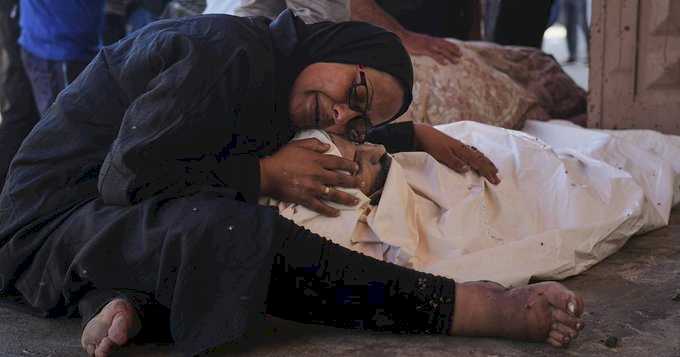
View 232 times
Appeals #court finds #Trump’s effort to end birthright citizenship unconstitutional, upholds block.
A federal appeals court ruled Wednesday that U.S. President Donald Trump’s order seeking to end birthright citizenship is unconstitutional, affirming a lower-court decision that blocked its enforcement nationwide.
The ruling from a divided panel of the 9th U.S. Circuit Court of Appeals comes after Trump’s plan was also blocked by a federal judge in New Hampshire. It brings the issue one step closer to coming back quickly before the Supreme Court.
The 9th Circuit blocks the Trump administration from enforcing the order that would deny citizenship to children born to people who are in the United States illegally or temporarily.
“The district court correctly concluded that the Executive Order’s proposed interpretation, denying citizenship to many persons born in the United States, is unconstitutional. We fully agree,” the majority wrote.
The Associated Press
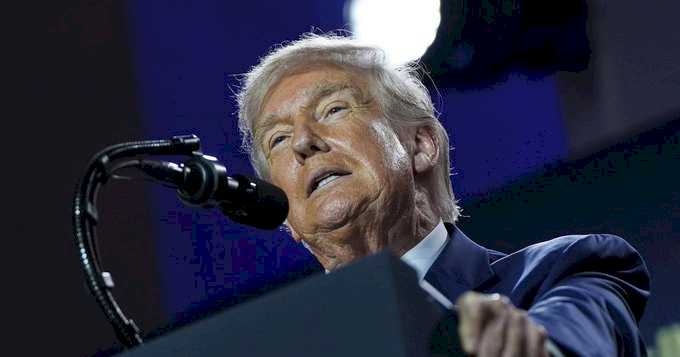
View 232 times
How #Canadian-made robots are rooting out fraud.
#Robots at a #startup in Montreal are helping restore the legacy of world-renowned Indigenous artist Norval Morrisseau.
A sprawling investigation into forgeries of Morrisseau’s paintings that have flooded the market for decades has uncovered what investigators have called the biggest case of art fraud in Canada, and some say, possibly in the history of the world.
The estate of the late artist has turned to AI and robots to help authenticate his paintings, in hopes of providing concrete empirical evidence for Canadian courts.
The process involves robotic arms that take paintbrushes, dip them in bright paint colours and execute complex strokes on a canvass to produce copies of paintings. This may evoke fears of robots taking over the art world, but those behind the technology say the paintings are not machine-created fakes to be passed off as a real Morrisseau, but replicas to train AI models to root out fraud.
“The better our work gets, the better the model has to get to detect the copies,” said Acrylic Robotics CEO Chloe Ryan. “This also allows us to refine our robotic techniques.”
Ryan is a former painter now armed with a degree in mechanical engineering, who set out on a mission to shake up the art world when she co-founded Acrylic Robotics.
“I have been painting and selling my work since I was a teenager, and I became very frustrated with how long it would take me to make a painting, and then I could sell that work of art once to one person,” they said. “I was making two dollars an hour, and I thought, ‘how can artists make a living selling their art?’”
Ryan says that led to a longer reflection on what she calls the “scarcity-driven art market.”
“The value of art is driven by how few people have access to it,” she said. “In the music or film industry, it is driven by how many people your art resonates with.”
Ryan set out to pioneer a model that would allow for the creation of copies of paintings that capture the same details as the original. She knows that is a scary proposition to some who are concerned robots could take over the work of human creativity, but she says this is based on using technology as a tool.
The model she is pitching is of artists consenting to copies of their paintings to be made, which would be clearly identified as copies, so that the human behind the art will be credited and compensated while also making their art more accessible.
“I am pioneering a new method of creation in fine art, one that is driven by how many people resonate with your work, and not one that is driven by how scarce it is,” said Ryan.
‘He made Canada look at itself’
But what caught the attention of the estate of the late Morrisseau is the technology’s potential to help in its fight against forgeries. Morrisseau, who died in 2007 at the age of 75, was a world-renowned painter known as the grandfather of contemporary Indigenous art in Canada.
“Morrisseau was pivotal in sharing Indigenous culture, opening up markets and new pathways for other Indigenous artists,” said Cory Dingle, the executive director of Morrisseau’s estate. “But he also made Canada look at itself.
“All through the residential school trauma, the land displacement and all the racism against him, his art always spoke of love and unity,” adds Dingle. “(O)f interconnectivity and interdependency, and so it is important to restore his legacy.”
Morrisseau’s pieces sell in the millions, but thousands of fraudulent works of art have flooded the market since the late 1990’s, making it difficult to authenticate and sell his paintings. The estate says reporting fakes posed a challenge in the face of Canadian laws.
Acrylic Robotics works closely with the estate to create increasingly precise copies of Morrisseau paintings, which are used to train a computer program called Norval AI that was developed three years ago by professors to detect fakes.
That program produces heat maps showing spots where a copy differs from the original. Acryclic Robotics has been going back and forth with the estate for about a year, improving copy after copy.
For Morrisseau’s estate, this is part of a crucial mission.
“Restoring his legacy means that these institutions will study him, that the museum will display him, and we will be able to share this with the world,” said Dingle, sitting in front of a rarely seen Morrisseau.
But in the process, there will be more Morrisseau copies floating around. Robotic Acrylics says it is working with the estate to ensure that there are markings in the pieces to ensure that they could never be sold as originals.
Producing precise brush strokes involves much more than a few clicks of a mouse.
“There is a robotic challenge of how do I have a robot move in the same way as a human wrist, with the same delicate strokes,” said Ryan.
Achieving that may spark concerns about machines replacing humans, but the hope here is that this is a high-tech step in the age-old fight against art fraud.

View 226 times
Wildfire kills 10 firefighters and rescue workers in Turkiye
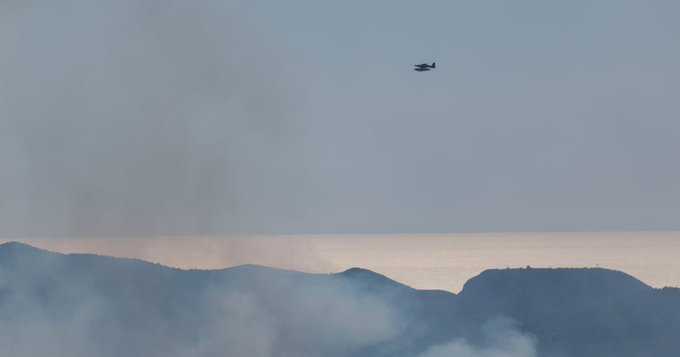
View 240 times
#Medieval knight’s complete #skeleton discovered beneath Polish ice cream parlour.
Archeologists have discovered the remains of a medieval knight, buried under a shuttered ice cream parlour in the Polish city of Gdańsk.
Experts have been working at the site in the historic Śródmieście (city centre) district since 2023, and initially uncovered a medieval tombstone decorated with the carved image of a knight, according to a statement from Polish archaeology firm ArcheoScan, sent to CNN on Tuesday.
The tombstone was then lifted earlier in July, revealing the complete skeleton of an adult male, thought to have lived around the 13th or 14th century.
The find is of “exceptional significance” and “one of the most important archaeological discoveries in Poland in recent years,” Sylwia Kurzyńska, archeologist and director of ArcheoScan, said in the statement.
The tombstone is made from Gotland limestone, which was highly prized in the Middle Ages, and the relief depicts a knight sporting chainmail armor and mail leggings, with a sword and a shield.
The slab measures around 150 centimetres (4’ 11”) in length, and important details of the artwork can still be seen, despite the fact that it is partially damaged.
“The tombstone is remarkably well preserved, considering it was carved from soft limestone and lay underground for centuries,” said Kurzyńska.
“The knight is shown standing upright with an uplifted sword — a posture likely symbolizing authority and elevated social status,” she added.
This marks the tombstone out from the vast majority of late medieval sepulchral art, which tended to be limited to inscribed epitaphs, heraldic panels or Christian crosses, according to Kurzyńska.
“Only a small fraction included depictions of the deceased — and among these, most were simplified engravings on flat slabs designed for church floor use,” she added.
It is also unusual in that both the artwork and its archeological context remain intact.
After lifting the stone, archeologists found the remains of a man who stood 170-180 centimetres (5’ 7” - 5’ 11”) tall, far larger than the medieval average, according to Kurzyńska.
The bones were arranged naturally, confirming that the tombstone marked the original burial site, and preliminary analysis indicates “excellent preservation,” she said.
“Although no grave goods were found, all available evidence suggests that the deceased was a person of high social standing — most likely a knight or commander held in particularly high esteem and respect,” said Kurzyńska.
The grave was part of a cemetery housing almost 300 burials, which was attached to the oldest known church in Gdańsk.
The church was built from oak found to have been felled in 1140, and was located in an early medieval stronghold occupied from the late 11th century to the early 14th century, according to the statement.
“This was a place of power, faith, and burial — a space of symbolic and strategic significance in the history of Gdańsk,” said Kurzyńska.
The latest find “offers an invaluable source of knowledge about the lives and deaths of Gdańsk’s military elite in the 13th and 14th centuries, about medieval funerary traditions, and about cross-Baltic cultural connections,” she added.
Experts are now working on further analysis of both the tombstone and the skeleton.
The stone slab is being cleaned and stabilized so that it can be documented and 3D scanned to allow for the digital reconstruction of missing fragments, while the skeleton will undergo anthropological and genetic analysis to reveal more about the knight’s life, and a facial reconstruction will be made based on the skull.
By Jack Guy, #CNN
View 247 times
Some Air #India victims’ families in U.K. were sent wrong remains, lawyer says.
Authorities in India sent the wrong remains to some British families whose loved ones were killed in a plane crash last month, their lawyer has claimed, as relatives reckoned with the human cost of the world’s deadliest aviation accident in a decade.
At least two U.K. nationals were discovered to have been misidentified after they were repatriated, according to James Healy-Pratt, an international aviation lawyer who is representing some of the British relatives of victims.
In one case, a coroner in London discovered that the DNA of several bodies had been co-mingled in one of the caskets, Healy-Pratt told U.K. news agency PA Media.
Dr Fiona Shaw “picked up DNA anomalies” when the bodies were first repatriated, Healy-Pratt said.
“My understanding was that the co-mingling was at the very beginning, which alerted Dr Wilcox to the fact that she had to be 100% assiduous about checking the identification of the incoming remains,” the lawyer added.
“She was then able to determine that one particular loved one was not at all who the family thought they were,” said Healy-Pratt.
All but one of 242 passengers and crew members were killed on June 12, after an Air India jet lost momentum and hurtled into a densely populated neighborhood in Ahmedabad, western India.
The London-bound aircraft had barely left the runway of Sardar Vallabhbhai Patel International Airport before it spun out of control and nosedived into the BJ Medical College and Hospital hostel – also killing 19 people on the ground.
Authorities have not yet released the definitive cause of the crash, but a preliminary report suggested that the fuel control switches in the cockpit of the Boeing 787 Dreamliner had been flipped, depriving the engines of power.
In an audio recording from the black box, one of the pilots is heard asking the other why he flipped the switches, according to the assessment by India’s Aircraft Accident Investigation Bureau published last week. The other pilot responds that he did not.
Moments later, the switches were flipped to turn the fuel supply back on. Both engines relit and one began to “progress to recovery,” but it was too late to halt the plane’s tumultuous descent.
Of those killed on board, at least 169 were Indian nationals, seven were Portuguese and one was from Canada. The only survivor was Vishwash Kumar Ramesh, one of 53 U.K. passengers that day who told local media that he escaped by clinging onto a small space near the door by his seat.
‘Deeply troubled’
The relatives of three victims said they were “deeply troubled” by the revelations on Wednesday, calling on authorities to act with “care, co-ordination and respect.”
“Recent developments have only confirmed what many feared: that serious mistakes may have been made, and that the dignity and rights of victims and their families were not safeguarded as they should have been,” they said in a statement.
The relatives of Akeel Nanabawa, his wife Hannaa Vorajee and their four-year-old
daughter Sara Nanabawa added that while they are “confident” they received the “correct bodies” - they were still “deeply troubled by what this means for other families who may still be searching for certainty and closure.”
“This isn’t just a personal tragedy; it is a collective one.”
India’s foreign ministry had been “working closely with the U.K. side from the moment these concerns and issues” were raised, according to a spokesperson.
Authorities conducted identification of victims using “established protocols and technical requirements,” foreign ministry spokesperson Randhir Jaiswal said in a post on X on Wednesday.
“All mortal remains were handled with the utmost professionalism and with due regard for the dignity of the deceased,” Jaiswal added. “We are continuing to work with the U.K. authorities on addressing any concerns related to this issue.”
The case came on the heels of a meeting in London between India’s Prime Minister Narendra Modi and his British counterpart, Keir Starmer, as the two nations sign a landmark free trade agreement.
Healy-Pratt, who is demanding “financial justice” for the families, said he believes the allegations will be on the agenda for the talks this week.
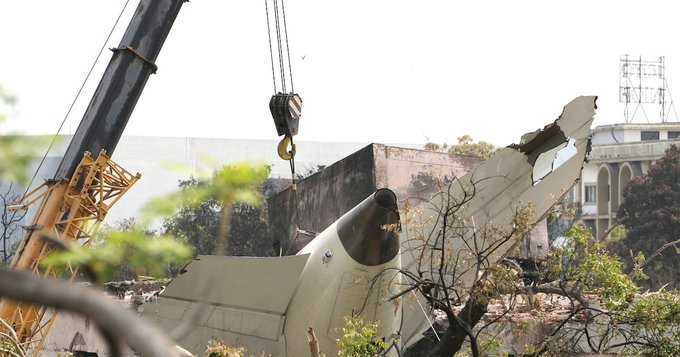
View 242 times
U.S. #Olympic and Paralympic officials bar transgender women from competing in Olympic women’s #sports.
The new policy, announced Monday with a quiet change on the USOPC’s website and confirmed in a letter sent to national sport governing bodies, follows a similar step taken by the NCAA earlier this year.
The USOPC change is noted obliquely as a detail under “USOPC Athlete Safety Policy” and references Trump’s executive order, “Keeping Men Out of Women’s Sports,” signed in February. That order, among other things, threatens to “rescind all funds” from organizations that allow transgender athlete participation in women’s sports.
U.S. Olympic officials told the national governing bodies they will need to follow suit, adding that “the USOPC has engaged in a series of respectful and constructive conversations with federal officials” since Trump signed the order.
“As a federally chartered organization, we have an obligation to comply with federal expectations,” USOPC CEO Sarah Hirshland and President Gene Sykes wrote in a letter. “Our revised policy emphasizes the importance of ensuring fair and safe competition environments for women. All National Governing Bodies are required to update their applicable policies in alignment.”
The National Women’s Law Center put out a statement condemning the move.
“By giving into the political demands, the USOPC is sacrificing the needs and safety of its own athletes,” said that organization’s president and CEO, Fatima Goss Graves.
The USOPC oversees around 50 national governing bodies, most of which play a role in everything from the grassroots to elite levels of their sports. That raises the possibility that rules might need to be changed at local sports clubs to retain their memberships in the NGBs.
Some of those organizations -- for instance, USA Track and Field -- have long followed guidelines set by their own world federation. World Athletics is considering changes to its policies that would mostly fall in line with Trump’s order.
A USA Swimming spokesman said the federation had been made aware of the USOPC’s change and was consulting with the committee to figure out what changes it needs to make. USA Fencing changed its policy effective Aug. 1 to allow only “athletes who are of the female sex” in women’s competition and opening men’s events to “all athletes not eligible for the women’s category, including transgender women, transgender men, non-binary and intersex athletes and cisgender male athletes.”
The nationwide battle over transgender girls on girls’ and women’s sports teams has played out at both the state and federal levels as Republicans portray the issue as a fight for athletic fairness. More than two dozen states have enacted laws barring transgender women and girls from participating in certain sports competitions. Some policies have been blocked in court after critics challenged the policies as discriminatory, cruel and unnecessarily target a tiny niche of athletes.
The NCAA changed its participation policy for transgender athletes to limit competition in women’s sports to athletes assigned female at birth. That change came a day after Trump signed the executive order intended to ban transgender athletes from girls’ and women’s sports.
Female eligibility is a key issue for the International Olympic Committee under its new president, Kirsty Coventry, who has signaled an effort to “protect the female category.” The IOC has allowed individual sports federations to set their own rules at the Olympics -- and some have already taken steps on the topic.
Stricter rules on transgender athletes -- barring from women’s events anyone who went through male puberty -- have been passed by swimming, cycling and track and field. Soccer is reviewing its eligibility rules for women and could set limits on testosterone.
Trump has said he wants the IOC to change everything “having to do with this absolutely ridiculous subject.” Los Angeles will host the Summer Games in 2028.

View 244 times
During an interview on Monday’s “The Daily Show With Jon Stewart,” Soon-Shiong said the move would allow the Times “to be democratized and allow the public to have ownership of this paper.”
Soon-Shiong said he’s working with “an organization that’s putting that together right now.” He didn’t identify the organization or say whether the deal would involve an initial public offer to sell shares of the company or another investment arrangement.
“Whether you’re right, left, Democrat, Republican, you’re an American. So the opportunity for us to provide a paper that is the voices of the people, truly the voices of the people, is important,” he said.
Soon-Shiong, a biotech billionaire, acquired the Times as part of a $500 million deal, returning it to local ownership two decades after the Chandler family sold it to Tribune Co. Soon-Shiong’s purchase raised hopes after years of cutbacks, circulation declines and leadership changes.
But like much of the media industry, the Times has continued to face financial difficulties, losing money and subscribers. Last year the company said it would lay off at least 115 employees — more than 20% of the newsroom — in one of the largest staff cuts in the newspaper’s history.
At the time, the news organization said it had fallen well short of its digital subscriber goals and needed a revenue boost to sustain the newsroom and its digital operations.
In January 2024, executive editor Kevin Merida suddenly stepped down after a 2 1/2-year tenure at the newspaper that spanned the coronavirus pandemic and three Pulitzer Prizes, as well as a period of layoffs and contentious contract negotiations.
Then in October, the editorials editor resigned after Soon-Shiong blocked the editorial board’s plans to endorse Democratic Vice President Kamala Harris for president. Mariel Garza told the Columbia Journalism Review in an interview that she quit because the Times was remaining silent on the contest in “dangerous times.”
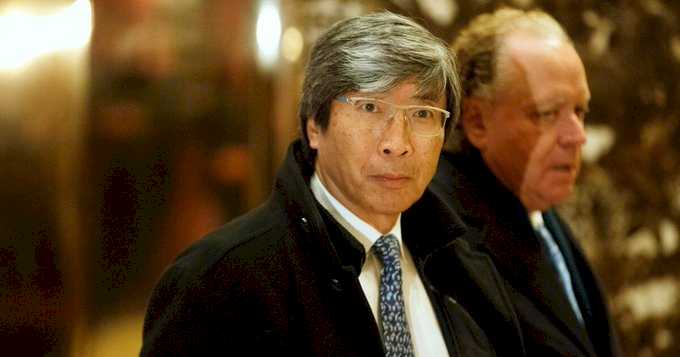
View 240 times

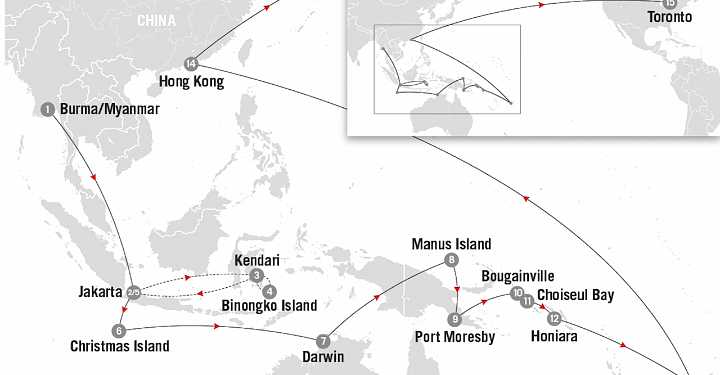


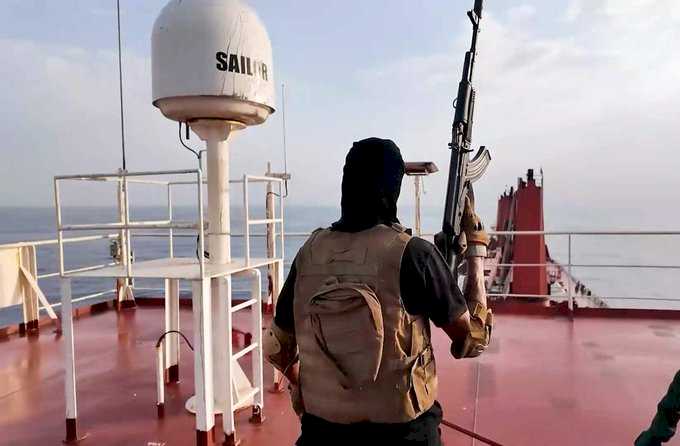



Global News on Umojja.com